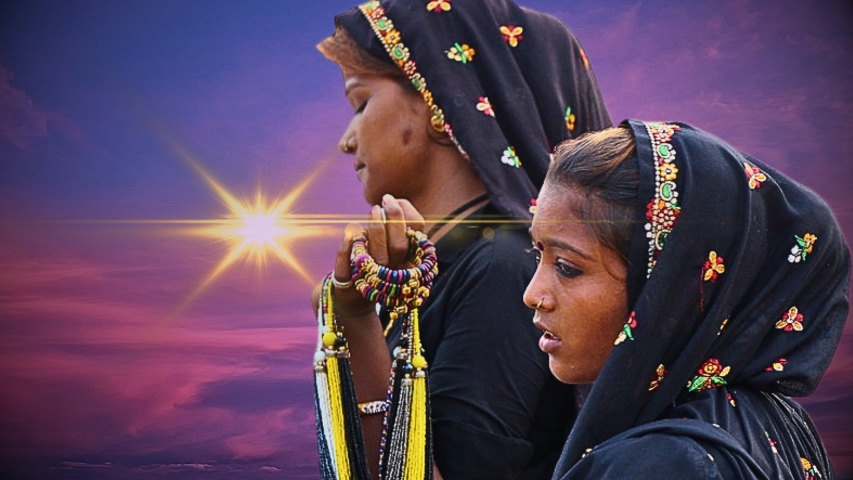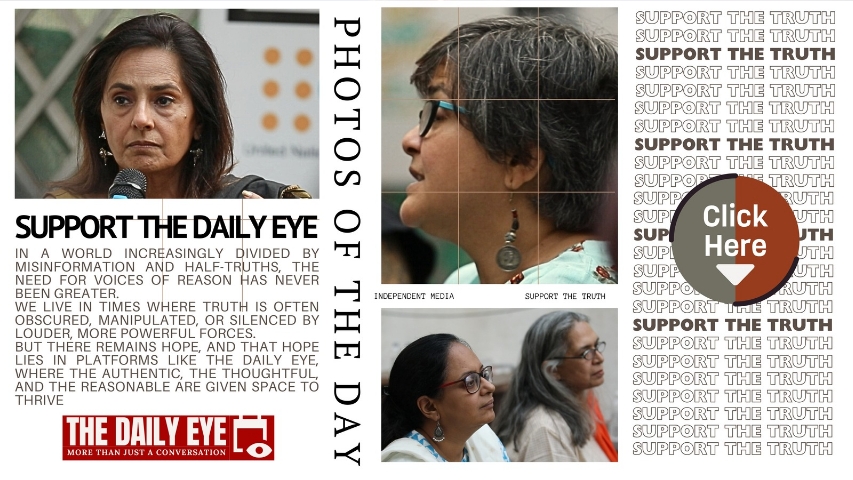
GENDER: HOW PATRIARCHY SILENCES RESISTANCE
by Vinta Nanda November 23 2024, 12:00 am Estimated Reading Time: 5 mins, 3 secsPatriarchy persists by co-opting privileged voices, masking systemic exploitation in industries like film and policy. Triggered by a panel discussion between Suhasini Maniratnam, Khushboo Sundar, Imtiaz Ali and Bhumi Pednekar at IFFI Goa, Vinta Nanda writes…
Photography: Vinta Nanda
Patriarchy thrives by leveraging the privilege of influential women to obscure systemic gender inequities, particularly in male-dominated industries like film and entertainment. At the 55th International Film Festival of India (IFFI), discussions showcased how personal anecdotes of safety by prominent voices overshadow the harsh realities faced by women. Similarly, policies like gender-based separation in Uttar Pradesh gyms and tailoring services perpetuate outdated patriarchal norms. This article examines the co-option of privilege, the persistence of toxic masculinity, and the urgent need for systemic reforms to achieve gender equality and accountability.
- IFFI Goa 2024 Insight: Examines how privileged narratives from Suhasini Maniratnam and Khushboo Sundar masked systemic issues in the entertainment industry.
- Patriarchy’s Co-Option of Privilege: Explores how patriarchal systems use influential women to dilute voices of resistance and obscure gender inequities.
- Comparing Policies and Narratives: Links gender-segregated policies in Uttar Pradesh with narratives at IFFI to highlight persistent patriarchal tactics.
- Call for Systemic Change: Advocates for redefining masculinity to build inclusive environments, and amplify marginalized voices to dismantle systemic oppression.
In India, the intersection of privilege and systemic inequities often manifests in policies and cultural narratives that perpetuate the status quo. A recent proposal by the Uttar Pradesh State Women’s Commission to restrict male tailors from serving female clients and mandate female-only staff in gyms reflects this tendency. These measures, while framed as safety initiatives, reveal a deep-rooted reluctance to address the cultural conditioning that enables exploitation and harassment. Instead of tackling toxic masculinity and promoting mutual respect, such policies reinforce the notion that isolation is a prerequisite for women’s safety.
This framework echoes the dynamics observed at the 55th edition of the International Film Festival of India (IFFI) in Goa. The event served as a microcosm of how patriarchal systems co-opt privileged women to drown out voices of resistance.

Patriarchy Thrives on Complicity
Patriarchy, as a system, thrives on complicity, particularly by co-opting women of privilege to act as its emissaries. These women, often unwittingly, perpetuate the illusion that gender inequities have been eradicated, becoming a counterforce to voices of resistance. This phenomenon was starkly visible at IFFI, a space where the government’s influence looms large, shaping discourse to align with its narrative.
A friend, present at a panel discussion, offered sharp observations: “For about ten minutes, Suhasini Maniratnam and Khushboo Sundar spoke as though the entertainment industry is the safest and happiest place for women. Suhasini began with, ‘Let’s start the discussion with something positive,’ and proceeded to describe how no one had ever misbehaved with her. She added anecdotes about being the only girl in her film school among 150 boys, who were apparently nice to her because she had extra money for tea. Khushboo echoed similar sentiments, leaving the impression that everything is perfect for women in this field.”
These narratives, while undoubtedly valid personal experiences, fail to reflect the systemic exploitation and harassment many women endure. They serve to obscure the harsh realities of the entertainment industry.
Privilege as a Shield
The privilege of women like Suhasini Maniratnam and Khushboo Sundar acts as a shield, creating a bubble where misogyny may appear non-existent. Their experiences, rooted in individual circumstances, are wielded as evidence of a progressive industry, invalidating the struggles of countless women who lack the same societal protections.
At the discussion, even Imtiaz Ali, known for nuanced storytelling, perpetuated a similar rhetoric, recounting how actor Kareena Kapoor felt safe on a set surrounded by male crew members. Such remarks blatantly disregard the vast majority of women who navigate this male-dominated industry without the safety nets of privilege, fame and influence.
When such voices dominate discussions, they drown out the uncomfortable truths shared by women who face harassment, discrimination, and exploitation. This creates a veneer of progress, discouraging systemic change while reinforcing the status quo.
The Patriarchy's Subtle Weapon
The co-option of privileged women by patriarchal systems is not accidental. These women, often perceived as trailblazers, inadvertently become symbols of progress. Their visibility and influence are wielded to delegitimize movements calling out the industry’s darker facets.
My friend astutely noted Suhasini’s problematic statement when it came to the Hema Committee Report about the Tamil film industry: “She claimed that Tamil women are safe because they return to homes in Chennai, unlike their counterparts in Malayalam cinema who are away from home during shoots because they live in far flung towns. This reductionist view ignored the very real dangers women face, irrespective of geography or proximity to home. It was an ivory tower perspective, disconnected from the industry’s ground realities.” Such remarks are dangerous because they frame harassment as an “aberration” rather than a systemic issue.
Reclaiming the Narrative
Bhumi Pednekar salvaged some of the discussion by steering it toward actionable questions: What can be done about offenders? How do we create safer workplaces? These are the discussions we need, yet they were overshadowed by anecdotes of privilege that offered little to no insight into the systemic reforms necessary for lasting change.
Patriarchy’s ability to co-opt influential women to dilute resistance is a reminder of the need to amplify voices from the margins. These are the voices that reveal the unvarnished truth and demand accountability, making the entertainment industry a genuinely equitable space for all.
In the words of my friend present at the panel discussion: “Suhasini Maniratnam seemed like she lives in La-La Land. Her remarks, centred around her own experiences, disregarded the collective struggles of women and the need for systemic change. Such complacency is a betrayal of progress.”
The parallels between the policies of separation and the co-option of privilege at platforms like IFFI reflect the same systemic flaw: a reluctance to confront the root causes of inequality.






-173X130.jpg)




-173X130.jpg)
-173X130.jpg)